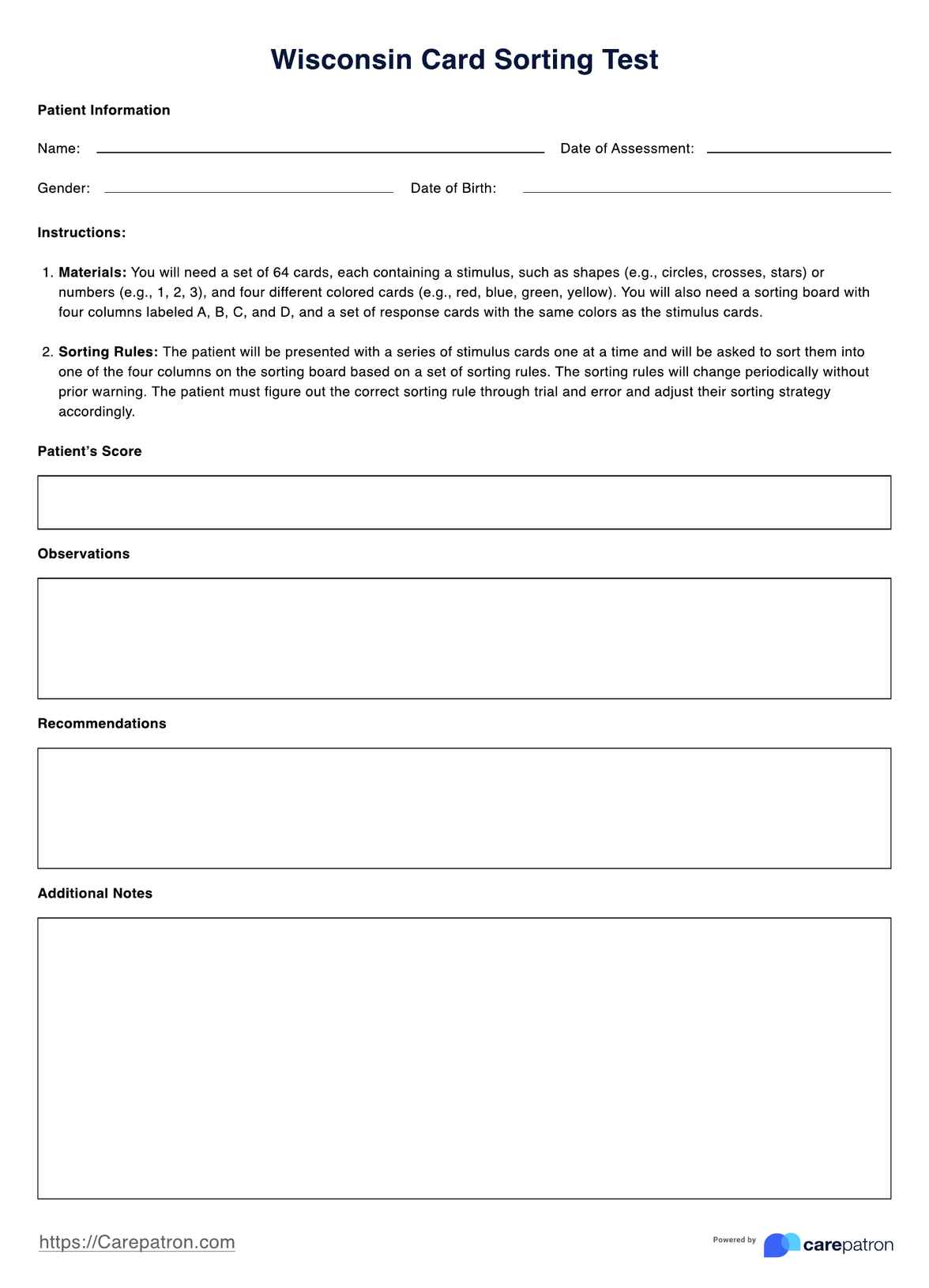The Wisconsin Card Sorting Test (WCST) is interpreted by analyzing many metrics, such as the number of categories attained, perseverative errors, non-perseverative errors, and failure to maintain set, and comparing them to normative data for the subject's age and educational level to spot any potential executive dysfunction or cognitive impairments.

Wisconsin Card Sorting Test
The Wisconsin Card Sorting Test is an examination that assesses executive function, cognitive flexibility, and problem-solving skills. Read our guide and download our template to find out more.
Wisconsin Card Sorting Test Template
Commonly asked questions
To score the Wisconsin Card Sorting Test (WCST), categories attained, perseverative errors, non-perseverative errors, and failures to retain set must be counted and compared to normative data for the test taker's age and educational level.
The Wisconsin Card Sorting Test (WCST) should only be administered by trained professionals, such as clinical or neuropsychologists, who have expertise in administering and interpreting the test and are licensed or certified to do so in their respective jurisdictions.
EHR and practice management software
Get started for free
*No credit card required
Free
$0/usd
Unlimited clients
Telehealth
1GB of storage
Client portal text
Automated billing and online payments











